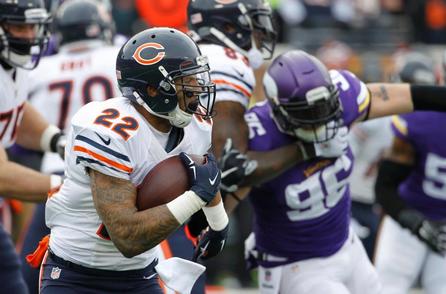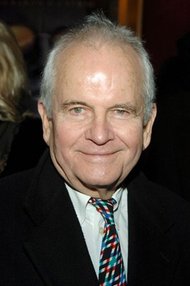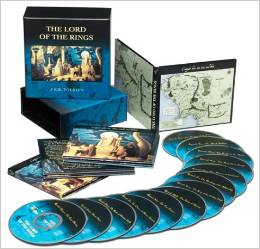|
This week's contestant is Sean Hampton from Round Rock, Texas. This sounds like a repeat from their archives, not just because the bantering about Round Rock, but there's a passage in the arrangement that sounded familiar. Whether I got the hidden song from that -- or because I did recognize it, I don't know. It's well-hidden, but identifiable, I thought, Though the contestant had trouble. I also guessed the composer, and that had nothng to do with remembering it from before.
0 Comments
Recently, I posted an article here on how several songs from Les Miserables seem pretty clearly adapted from classical music pieces. That brought about a comment from the oft-mentioned and inveterate Chris Dunn, who said how one of his favorite lifts is Bill Conti's use of Tchaikovsky's Violin Concerto for the Main Theme of the movie, The Right Stuff. I completely agree, and have been pointing that out for years. It's a far more egregious example for me -- the Les Miserables songs are adaptations of passages and seem basically fine to me. The Right Stuff theme is Tchaikovsky. But the most egregious is something I've offhandedly mentioned here in the past. How the Main Title song from Mel Brooks' film, The 12 Chairs, is almost note-for-note Brahms' Hungarian Dance #4. Even down to the song's bridge. Yet the screen credit reads "Theme Song by Mel Brooks." I suspect that that phrasing was used so that he wouldn't have to say, not only "Words," but also "Music by Mel Brooks," when it's clearly not. (The whimsy of this is that much of Brahms' Hungarian Dances are not by Brahms but rather his adaptation of old peasant folk songs.) Anyway to refresh your memory, here's "Hope for the Best,, Expect the Worst." It starts a bit abruptly because there's a short prologue scene that comes before and was cut off. There are also subtitles added, so you can sing along. It's a wonderful song with very clever and funny words by Mel Brooks, and lively music by...well, you know. And here below is Brahms' Hungarian Dance #4. Often, it can be a little tricky determining for absolute certain whether a song was really, truly "based on" another. But I challenge anyone to say that "Hope for the Best, Expect the Worst" not only wasn't based on Brahms' Hungarian Dance #4, but isn't almost entirely (with maybe a tweak or two) this exact piece of music below, including the bridge. To be clear, I absolutely love the song, "Hope for the Best, Expect the Worst." It just isn't "Theme Song by Mel Brooks." Only partly.
Our long national nightmare is over. The Chicago Bears's dismal season is over. Losing the final 13-9 to the Minnesota Viking, the Bears finished the season 5-11. But it was worse than that, in that the team was often out of some games by the end of first quarter. I sent an email to a friend at the halftime of the Bears-Packers game saying that I wouldn't be surprised if coach Marc Tressman was fired before the third quarter started. I was only being semi-facetious. It was that much an embarrassment. There were a few shining spots, most notably Matt Forte. Yet even there, some teeth-gnashing is involved. Matt Forte set an NFL record with 102 receptions, the most-ever by a running back in a single season. And he became only the second player in the history of the NFL to have over 1,000 yards rushing and 100 catches.
And...he wasn't selected to the Pro Bowl...!!! I understand that the Bears as a team stank. But that's all the more reason to be impressed by Forte's achievements. And there were other running backs who had good years. Though not all those selected appear to have. And again -- he set the record for most catches ever by a running back in NFL history and was just the second player ever in the league's history to have 100 catches and 1,000 yards. And he wasn't picked for the Pro Bowl??? Please. And it's not like Matt Forte is an unknown entity, who slipped through the cracks of voters unnoticed. He's been voted onto the Pro Bowl twice before, including last year. What more did voters want of him, especially on a terrible team -- to sell food concessions in the stands during the game, too?! The other week, I saw the final Hobbit film, which I enjoyed. It's much too long -- like all the Hobbit films -- and is largely one long battle scene. But the fight focuses on personalities which I think gives it substance, and the filmmaking craft it so otherworldly stunning that on that level alone, I was enthralled. It's not a movie everyone will like -- and I didn't remotely love it -- but there was much more than enough for me to marvel at. I mention all this though for another reason entirely. It's the reason I've loved the six Lord of the Rings/ Hobbit movies. It's a tiny reason, and an odd one. But -- I love them for this. And that's the inclusion of Ian Holm, as Bilbo Baggins. The 83-year-old British actor has had a distinguished career. Prior to the LOTR films, he was probably most recognized for playing the ostracized track coach, Sam Mussabini, in the Oscar-winning Best Picture, Chariots of Fire. But he also won the Tony Award as Best Featured Actor in 1967 in Harold Pinter's play, The Homecoming. And won the Olivier Award as Best Actor in 1998 for King Lear. He got an Oscar nomination as supporting actor in Chariots of Fire.
But it's for another far-lesser-known role that I bring all this up. But first a bit of history. Back in 1981, the BBC broadcast a 26-part radio adaptation of The Lord of the Rings, 13 hours long, broken into half-hour segments. Now, this might sound problematic and mind-numbing to some, but they aired it on National Public Radio in the U.S, and all I can tell you is that it was spectacular. I was riveted to the whole thing, waiting for each new episode. (My recollection is here in the U.S. they put two half-hours together each week.) The acting, writing, sound production, everything was just grippingly done. (You can read about it here.) How great was it? A couple years later, NPR re-aired it. I had no interest in listening to it again -- once was plenty, and I'd read the trilogy twice -- but I thought I'd tune in to the first episode for all time's sake, in appreciation and just to remind me how well it was done. Within minutes, I was hooked again...and I listened to the entire 13-hour series all over again. And starring as Frodo Baggins was...Ian Holm! He was brilliant. Just freaking wonderful. It was a glorious performance. And when two decades later I read that a movie series would be made of the LOTR trilogy, all I could think of was Ian Holm and his great portrayal as Frodo on the radio. I knew there was no way on earth (or Middle Earth) that he could play Frodo in the films -- that was only thanks to the magic of radio -- but I was still sorry for his performance being overshadowed. And then I read that he had been cast as Bilbo. There was no question in mind that this was due, in part, of course, because he's such a great actor, but also as an homage to the BBC radio series. Peter Jackson is far too detailed to not know. The amount of research that he and his fellow filmmakers delved into for the world of Tolkien is highly documented and shows on the screen. It's just not conceivable to me that he wasn't aware of this 26-part radio adaptation by the BBC. And that he not only included Ian Holm in the films, but in the far-too appropriate role of Bilbo Baggins has especially endeared Peter Jackson to me. And that Ian Holm is one of the few actors to also be in The Hobbit series, as well as The Lord of the Rings trilogy is just icing on the cake. And that he gets an homage in this final film -- how and when, I will not say, you'll have to see for yourself -- is all the better. And I'm serious about this, how thrilled I am for his notable inclusion. The BBC radio adaptation was that good, as was Ian Holm. If you're interested, you can check it out here on Amazon. It's been a quiet week. The local churches prepare for Christmas, Marilyn Tollerud receives a disturbing late-night call from her daughter Sharon, and a few thoughts on the benefits of winter.
This is a little belated, but two Saturdays ago Martin Freeman hosted Saturday Night Live. You likely recognize his name, but in addition to starring as Bilbo Baggins in The Hobbit (and as Dr. Watson in Sherlock), he was in the original BBC version of The Office with Ricky Gervais, playing the role of Jim. I figured that for sure they'd do a Hobbit sketch, and was hoping that they'd do something with The Office. Little did I suspect, though, that they'd put them both together. The sketch isn't hilarious, but it's amusing, whimsical and very well done. Freeman has the Jim character down pat, and gets the eye-rolls and slightly off-camera looks spot on. And Bobby Moynihan does a wonderful job as Gervais (playing David Brent). He's not doing a direct impersonation, since after all he's also playing Gandalf and Ian McKellan, but he has the Gervais mannerisms down, and whoever wrote the sketch got the David Brent dialogue impeccaably. |
AuthorRobert J. Elisberg is a political commentator, screenwriter, novelist, tech writer and also some other things that I just tend to keep forgetting. Feedspot Badge of Honor
Categories
All
|
|
© Copyright Robert J. Elisberg 2024
|









 RSS Feed
RSS Feed